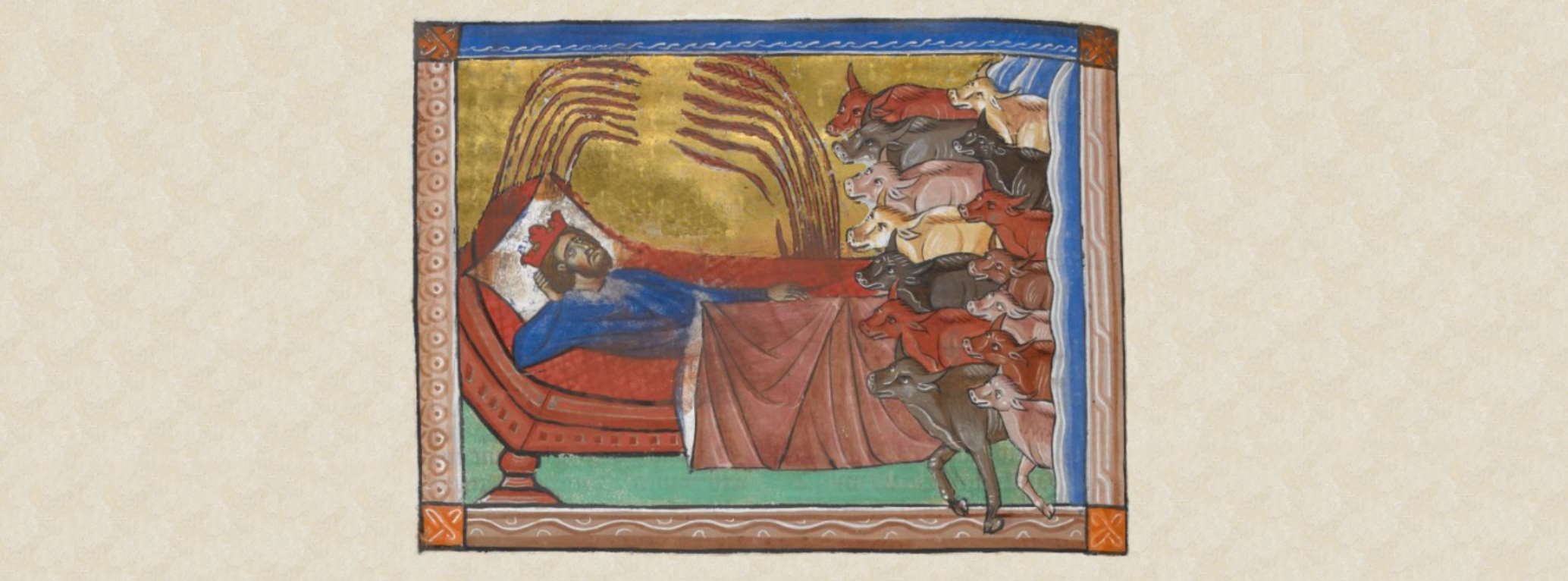King Heorsa and the Cattle of Whittlebury
The tale of Heorsa and the Cattle of Whittlebury is often told to young children as a cautionary lesson in how not to be greedy, and the value of sharing what they have with others in times of need. During times of plenty it is not uncommon for the local Thegn provide a "Heorsa Feast" for the families of their village, usual following the Autumn cattle cull. All are invited to the Thegn's table, be they rich, poor, freeman, or slave - and are invited to feast on cowflesh, and reflect on how fortunate they are to serve their current Thegn rather than a greedy, gluttonous King like Heorsa.
Summary
Though the tale varies in the details from village to village, the central tennets remain the same. Heorsa was chosen to lead the Kingdom following the death of his grandfather of the same name, the founder of Kingdom of the Heorsingas. Unlike his grandfather who was known to be magnaminous and generous to his retainers, the younger Heorsa jealously hoarded his wealth - and his people suffered as a consequence of his actions.
As the years passed, Heorsa's herds of cattle grew and grew, some say that his wealth in cattle was greater than of the High Kings of Old. Every year, he would journey to the lands of each of his Thegns in order to collect tribute, and it just so happened that his last stop before the onset of winter was in the village of Whittlebury. The Thegn of the village was a prudent sort, and intended to cull half of his herd - seers had foretold that the coming winter would be long and perilous. It agreed by the village headmen that a larger cull than usual would be required, for if the winter feed ran out before spring, it was likely the cattle would be thin and sickly at best, or prone to starvation at once.
As the Thegn began to give the order to start the cull, Heorsa stood up from the seat of honour in the Thane's Hall and forbade it. Earlier that day he had seen the fine form of Whittlebury's cattle, and feared that a larger cull now would mean there would be less cattle-tribute for him to collect in the years following. All the cattle would be spared the cull, and it would be up to the Thegns men to ration the feed so that the cattle made it through the winter. Though the Thegn protested, he could not stand contrary to the will of the King, and agreed to do all that he could to fulfill the King's wishes.
Winter came early that year, and with the snow so deep and the weather so poor, it forced Heorsa and his retinue to spend the winter at Whittlebury - further straining the village's food supplies, who also needed to account for the extra unculled cattle. As the winter dragged on, food became even more scarce. First it was the men, who begged the King to cull some of the cattle so that their families would not starve, but Heorsa would not relent. Secondly it was the women, who begged the King to cull some of the cattle so that their families would not starve, but still Heorsa would not relent. Thirdly it was the children, who begged the King to do anything he could so that their parents and they themselves would not starve, but for the third time Heorsa, heart as cold as the Winter's ice, said no. The King was the only one in the village who did not feel the pangs of hunger that winter.
Finally, it was not the Men or the Women, or even the children of the village that moved against the King, but the cattle. On the second fortnight following midwinter's day, the starving cattle broke free of their enclosures, stampeding towards the Thegn's hall where King Heorsa lay sleeping. As they burst into his bedchamber, Heorsa awoke with a start, bewildered at the sight of cattle despoiling his bedchamber. His cry to his retainers for aid was cut short with a scream which was quickly silenced. The cattle you see, half-crazed from the lack of food, began to gorge themselves upon the King. Heorsa was no more, and shocked from the sight of this bovine-induced regicide, the villagers could do nothing as the cattle left their village, ventured into the blizzard tempest, never to return.
To this day, the people of Whittlebury no longer keep cattle, nor will they touch cowflesh if it is offered to them.
Historical Basis
King Heorsa ruled the Heorsingas during the second century following the collapse of the High Kingdom. Unfortunately, very there are very few surviving sources contemporary to King Heorsa's life. What historical basis there is to this tale, if any, is unknown.



Comments